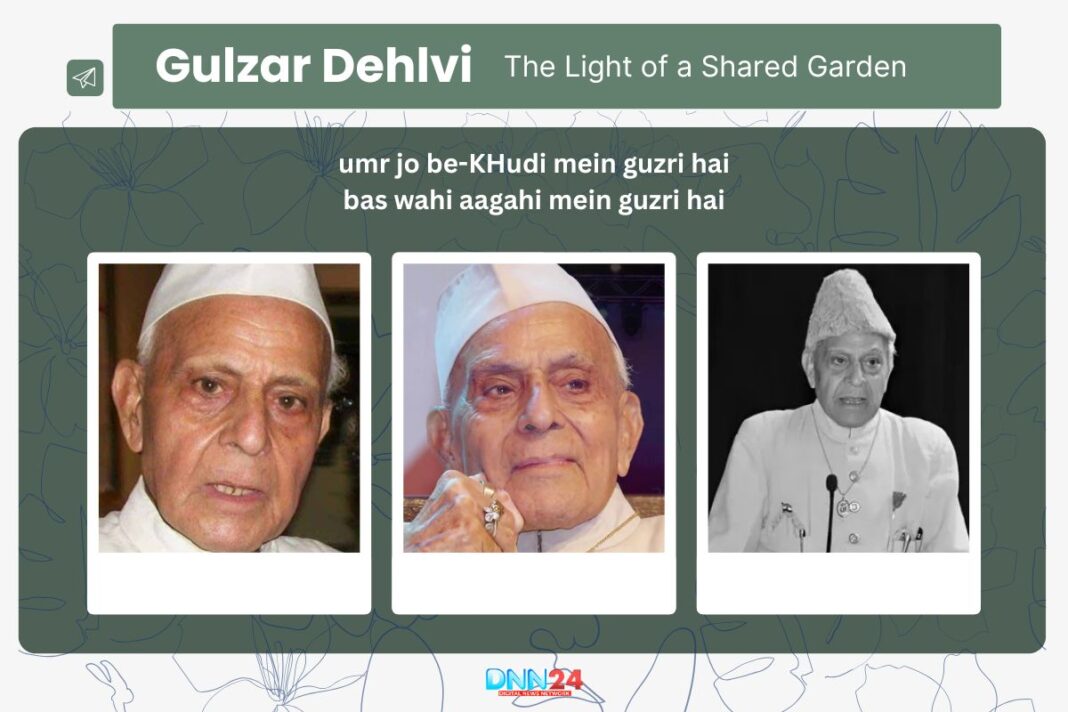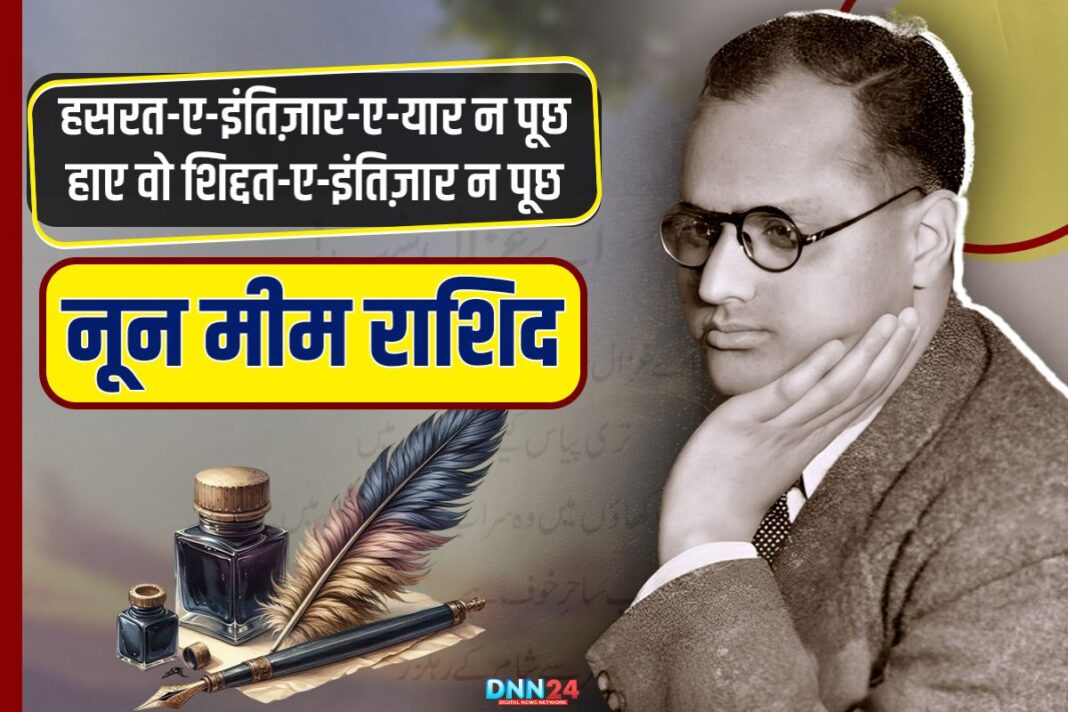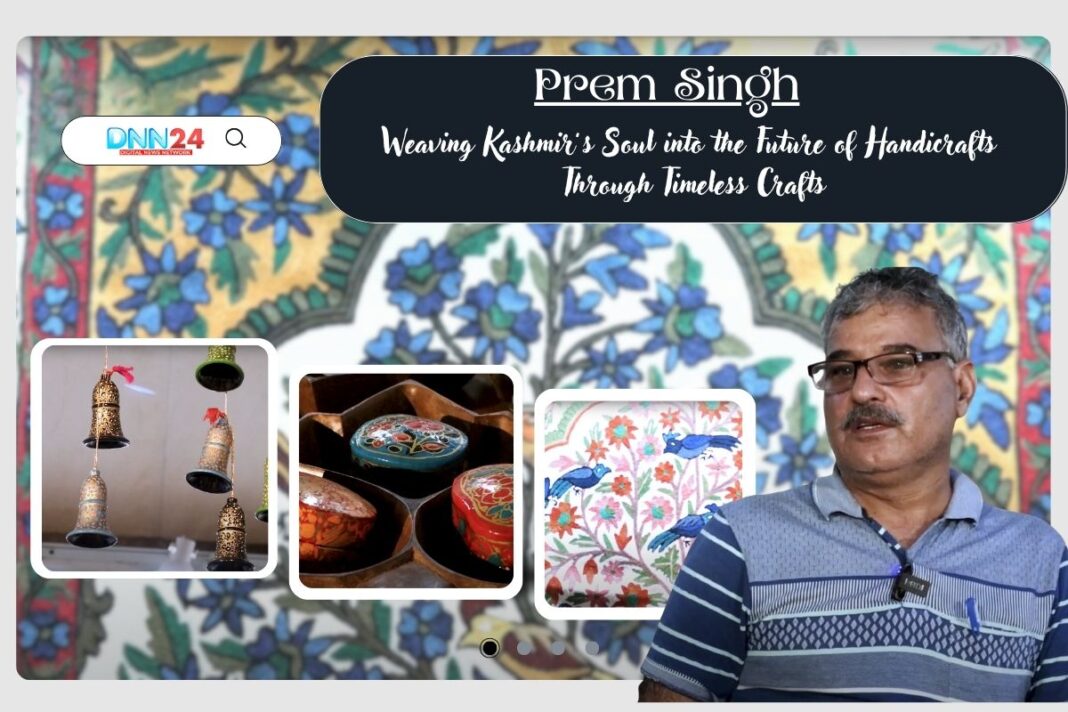Go down the narrow streets of Gali Kashmeerian in Old Delhi—listen, and you may smell poetic somewhere in the playful echoes and the reassuring beat of a living city, so gentle and so loving—it is like a friendly hand on the shoulder. This is where Anand Mohan Zutshi’ Gulzar Dehlvi’—poet, dreamer, and legend—began his extraordinary journey in 1926, in a home where emotion was cherished and verses filled the air.
koi mauj-e-nasim se puchhe
Gulzar Dehlvi
kaisi aawargi mein guzri hai
His father, Tribhuvan Nath Dehlvi, and mother, Brij Rani Zutshi (Be-Zaar), dipped their pens in the ink of sorrow and longing. However, their son, who was named Gulzar, which means a garden of flowers, promised a flowering of hope rather than tears.
un ki bhi rah saki na darai
Gulzar Dehlvi
jin ki askandari mein guzri hai
Learning to recite verses was in Urdu, Persian, Sanskrit, and even shlokas. Gulzar was imbued with the wisdom of all religions as a young boy. Hindu in his birth, Muslim in his pen name, and universal in his soul, he carried both the Gita and the Quran in his heart. Just picture a character-white sherwani, nehru cap, chain hung with lockets, a rose on his chest, and tales always waiting to be told on his lips.
Division, Suffering–and the Vow of Peace
Childhood was not easy. The background of Indian independence and partition was a wounded sky that hovered over Delhi. Gulzar Dehlvi, still a boy, rebelled against British colonial celebrations by uniting students in protest—a story almost lost to time but unforgettable to those who witnessed it. His poetry started as an act of rebellion in a child, but soon became a mission of justice and unity by an adult man.
us sitamgar ki mehrbani se
Gulzar Dehlvi
dil ulajhta hai zindagani se
In his poems, the fire of freedom was burning: At nine, he was already rebellious against injustice. His words were the scars and fantasies of a generation that was divided, but never, ever did they become harsh or desolate. His poetry murmured unity, longing, and love in the darkest hours.
biTha ke dil mein giraya gaya nazar se mujhe
Gulzar Dehlvi
dikhaya turfa-tamasha bala ke ghar se mujhe
His place of residence was a holy intersection. The Sitaram Market, so named after his ancestors, was a living witness to the plural soul of Delhi. Gulzar believed in an everyday India-his magic lay in integration and not separation. His poetry was a healing ointment to the divided hearts, and his appearance in mushairas was a festivity of the Ganga-Jamuni tehzeeb of India, where the Hindu and Muslim cultures melded harmoniously.
The Poet of the People: Tales of Mushairas and More
Gulzar Dehlvi was not just a poet behind closed doors. He was a regular at mushairas, those mythical poetry events that turned reticent poets into superstars. His voice was rare, and it could deaden a crowd and then fill it with laughter, tears, or pride when he spoke. And what stories he told!
falah-e-admiyat mein saubat sah ke mar jaana
Gulzar Dehlvi
yahi hai kaam kar jaana yahi hai nam kar jaana
Just imagine Jawaharlal Nehru himself reading out one of Gulzar’s poems, Zarurat Hai Un Naujawano Ki, on the ramparts of Red Fort on August 15, 1947, the day poetry and freedom were finally united. Or when he took a captured audience of freedom fighters and students and sang not only about the evil of division but also of the vision of a prosperous, harmonious future.
ek kafir-ada ne luT liya
Gulzar Dehlvi
un ki sharm-o-haya ne luT liya
However, Gulzar did not confine himself to big occasions. His poetry helped in times of silent, ordinary life. In one nazm, he mentions a kite runner who is running after dreams on broken rooftops—a symbolism of his restless desire. In another, he writes of the uncertain voyage of a paper boat in stormwater, reminding us of the frailty of hope in troubled times.
zindagi rah-e-wafa mein jo miTa dete hain
Gulzar Dehlvi
naqsh ulfat ka wo duniya mein jama dete hain
Tales that lie in Between the Verses: Secrets of his Ghazals and Shayari
Popular couplets had profound personal histories behind them. Gulzar Dehlvi, unlike most famed poets, often used poetry as his diary, encoding his life’s highest and lowest tides into shers and ghazals. Among his favorite lines, the following, “umr jo be khudi mein guzri hai / bas wahi aagahi mein guzri hai”–The years lost in self-forgetfulness / Were the only ones lived in awareness, was written under the influence of a silent struggle with grief following the death of a close friend. Nobody knew it until years later; the heartbroken people were the only ones who could get the real meaning of it.
umr jo be-KHudi mein guzri hai
Gulzar Dehlvi
bas wahi aagahi mein guzri hai
He composed: Jahan insaniyat wahshat ke hathon zabh hoti ho / Jahan tazlil hai jina wahan behtar hai mar jana,–wherein, Where humanity is slain by cruelty / better to die than live in humiliation. These lines were initially recited at a mushaira, which almost became political. These were the lines that were a direct reflection of the communal violence that marred Delhi, and Gulzar was the only one who dared to ask people to love rather than hate.
jahan insaniyat wahshat ke hathon zabh hoti ho
Gulzar Dehlvi
jahan tazlil hai jina wahan behtar hai mar jaana
Romantic longing is not left behind, as there are tales of him being haunted by a fleeting glance of a beautiful stranger that span years and spawn a set of sighs in Shayari, each of which was crafted with hope, agony, light, and shadows. His fans could never get enough of finding themselves in his words because they always echoed what we only know to keep tightly to ourselves, yet never dare to reveal by uttering.
hum jo guzre un ki mahfil ke qarib
Gulzar Dehlvi
ek kasak si rah gai dil ke qarib
The Science Of Words: A Unlikely Editor and His Urdu Magazine
Few know that this poetic soul had a scientific spirit, too! In 1975, Gulzar Dehlvi became the chief editor of Science Ki Duniya, the first-ever Urdu science magazine in India. Was that not strange? Poets hardly ever embrace laboratories, but curiosity was limitless for Gulzar.
maqsad-e-husn hai kya chashm-e-basirat ke siwa
Gulzar Dehlvi
wajh-e-taKHliq-e-bashar kya hai mohabbat ke siwa
He spent many years translating complex rules of nature to lyrical Urdu in order to make science understandable to millions of people who felt out of the modern world. His editorials were lit up with metaphors-gravity was the desire between two hearts, chemical reactions were converted into stories of a stranger meeting in a crowded bazaar. Not only was it scientific writing, but a new form of art, a bridge constructed out of logic and lyric.
Victories, Defeat, and the Battle of the Last Stand
Gulzar Dehlvi’s life, for all its applause and admiration, was also marked by deep personal losses and health struggles. He lost his wife, Kavita Zutshi, the inspiration of several romantic verses, and then dared to bear years of bittersweet solitude. His poems, in turn, became more tender and radiant, and the evidence that the cracks in the heart allow the light to enter.
ai masiha-dam tere hote hue kya ho gaya
Gulzar Dehlvi
baiThe-biThlae mariz-e-ishq ThanDa ho gaya
The world rediscovered him in his nineties. The Vice President of India awarded him on his 91st birthday due to his selfless work for Urdu. However, his most courageous moment was perhaps at the end, when he overcame COVID-19 at 94. The whole country followed in amazement as he demonstrated his undying spirit towards life. But he passed away in a few days after recovery, leaving the world as gracefully and dignified as he was in poetry.
dil hi dil mein dard ke aise ishaare ho gae
Gulzar Dehlvi
gham zamane ke sharik-e-gham hamare ho gae
During his last days, they came, one after another: the writers, the politicians, the students, each hoping to get a word, a blessing, a lesson of some secret kind. When Gulzar was asked by a young poet shaking with nerves, he just told him, “Write honestly. Hurt and joy both make you live.– Never seek applause, seek truth.” Words that were carved in the poet’s soul brought him back home.
The Unbroken Thread: Why Gulzar Dehlvi Still Matters
Gulzar Dehlvi is gone, but his stories are stitched into the very fabric of India’s conscience. Being the final authentic voice of composite culture in Delhi, he passed on his generations through the importance of shared celebration of faith, love, and language, all of which would mature on a single tree of great age.
pahle to dam-e-zulf mein uljha liya mujhe
Gulzar Dehlvi
bhule se phir kabhi na dilasa diya mujhe
His mastery of words is not the only thing that makes his legacy unique, as he made all the readers feel like they were seen. Please read one of his ghazals; your longing will be relieved. And hear his nazms of revolution, and your dream of justice will be strengthened. In a world that is keen to split apart, the poetry of Gulzar sows the seed of fraternity of being, just being a human being.
na sahi hum pe inayat nahin paimanon ki
Gulzar Dehlvi
khiDkiyan khul gain aankhon se to mai-KHanon ki
He lived a life of outward loudness most inwardly—like a garden in blossom, ready to be discovered by everyone who dares to stop, sense, and believe. His words in classrooms ask newly formed minds to combine knowledge with curiosity; in poetry events, he tells us to enjoy the community; and in lonely hearts, he tells us that the quest for love makes us get our true strength.
ya mila qaum ko KHud apna nigahban ho kar
Gulzar Dehlvi
sau tarah dekh liya hum ne pareshan ho kar
So, when you find life heavy and the road lonely, remember Gulzar Dehlvi—his poetry, courage, and faith in tomorrow. Stop, hear the voice of the wind, somewhere, maybe in Old Delhi, maybe in your backyard, a new flower is silently flowering as Gulzar wanted it to be.
This article has drawn from a tapestry of authentic accounts, interviews, collections of poems, and personal narratives, making sure each line echoes the magic, the struggle, and the inspiration that was Gulzar Dehlvi.
Also Read: Munawwar Rana: The Poet Who Wrote the World’s Tears
You can connect with DNN24 on Facebook, Twitter, and Instagram and subscribe to our YouTube channel.



